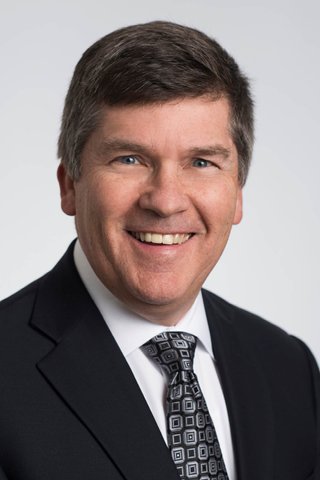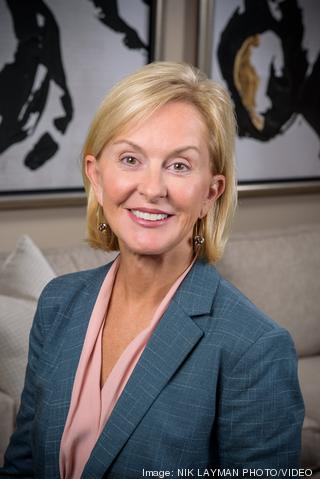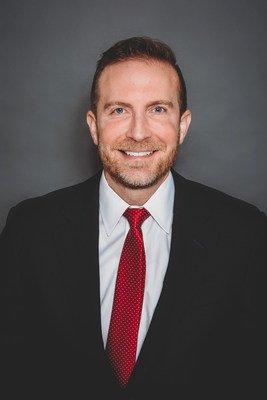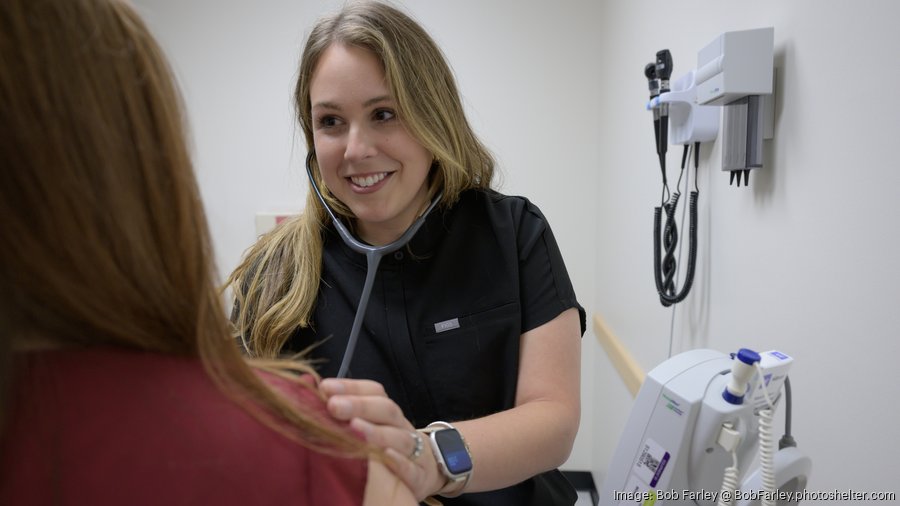Listen to this article 3 min
The health care landscape has undergone trials and transformations throughout the nation over the past year, including in metro Birmingham.
Leaders in the local health care arena are anticipating what the upcoming year might hold.
What can we expect in 2024?

Randy Johansen, CEO of American Family Care, expects consolidation of health care to continue to occur in 2024.
"In urgent care, there are 14,000 clinics across the country, and we're the largest player in the industry with nearly 400 locations. So, I expect you're going to see a significant increase in investment in urgent care from private equity, which will lead to a consolidation of the industry," he said.

Dawn Bulgarella, UAB Health System CEO, said she anticipates the growing use of artificial intelligence in health care, with particular focus on diagnostic assistance, predictive analytics and personalized medicine; increased use of telehealth services for patients in rural environments; growing recognition of the importance of mental health and the shortage of providers in that area and increased development in remote patient monitoring with the use of wearable devices to management chronic conditions and a focus on healthier lifestyles.

Brad Kennedy, group president of Encompass Health’s South Central Region, concurred that AI will provide opportunities to improve care.
"However, we must be cautious that we continue to find a balance between AI implementation and the use of human intelligence, particularly related to clinical judgment," he said, adding that data and technology will remain important to leverage in 2024.
"At Encompass Health, we will continue to leverage our proprietary database of inpatient rehabilitation patient records to further develop our predictive analytics and enhance our value proposition," Kennedy said. "In the last few years, these patient insights have helped us develop predictive models to identify patients at risk for acute care transfers during their stay with us and those at risk for readmission once they are discharged home from our hospitals. Our most recent predictive model reduces patient falls. Through these tools, we implement strategies as a part of patient care plans, improve outcomes and reduce health care expenditures."
What challenges are on the horizon?
Challenges on the horizon include receiving appropriate reimbursement from insurance carriers, Johansen said, adding that AFC is still not getting an appropriate reimbursement from several insurance carriers in different states, some of which are pushing to reduce the fee schedules they pay AFC, rather than adequately adjust for inflation.
In terms of opportunities, he expects that the number of patients seeking accessible primary care in medical facilities like AFC will continue to increase, because there are not as many traditional primary care providers as there used to be.
"That shift is a unique opportunity for us," he said. "There will also be an opportunity in the value-based care where you're paid on a capitated basis. There's an opportunity for us to be quite successful in that, if we offer the right types of services to patients and insurance companies."
Kennedy said a challenge includes an aging population with longer life expectancies.
"Advancements in medical treatments have made many chronic conditions easier to manage and therefore account for the increased life expectancies but also contribute to rising health care costs due to the greater need for care," he said. "The aging population and the higher volume of patients needing health care will place further strain on a very tight labor market."
Bulgarella echoed the sentiment that on aging population with cause increased demand for services and highlighted the continued challenge of access to health care services.
Opportunities, she said, include the chance to shift toward more patient-centered care with an emphasis on involving patients in health care decisions, improved patient communication, creativity in patient care opportunities in the home and expansion of telemedicine for ease of care to underserved areas.
What does all of this mean for Birmingham?
With health care as an economic driver for the region, Johansen anticipates strong growth amid the challenges.
"I believe Birmingham will continue to develop as a destination for world-class care, innovation and research," he said. "As the nation’s largest owner and operator of inpatient rehabilitation hospitals, and with both our company home office and two of our hospitals are in Birmingham area, we are proud to be a part of our health care community and the region."
Bulgarella said health care providers in Alabama have endured several challenging years with increased patient demands, workforce shortages and burnout and financial shortfalls.
"We are focused on improving access for patients, maintaining the highest quality standards and working to expand our workforce with educational opportunities across several health care shortage areas," she said.
